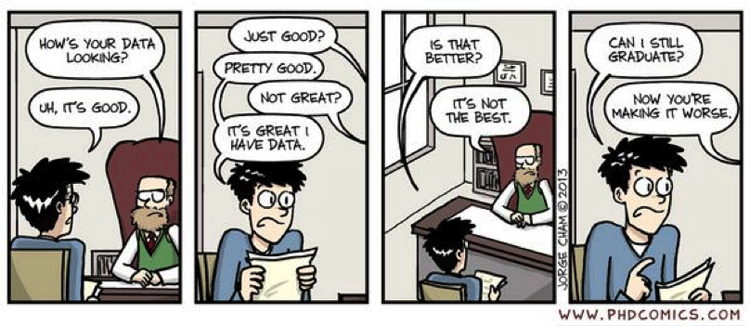We might be tempted to think of the business of doing research in science and engineering as an assembly line of data: we generate data in labs, process it with computers, and present the results in publications. Numerous jokes about the significance of data to the life and death of graduate students might support this assumption (see Figure 1). Although data is not the only concern of the research community, and indeed, there are research projects which do not produce data, the enterprise of science and engineering would certainly look very different had we taken away all the people, instruments, procedures, and products that involve the production and handling of data. Therefore, it is not an overstatement to say that one does not make a good researcher in science and engineering without a proper understanding of the ways in which data and research interact with each other.

Figure 1 Data and Graduate Life by PhD Comics.
Overview
In this unit, we explore questions like “what is data?” “what roles does data play in research?” and “what tools are available for thinking about the ethical implications of research data?” We also introduce strategies for research groups to establish shared understandings about data handling at the stage of research design.
Learning objectives
After successfully finishing this unit, you will be able to:
- Understand that data is defined differently according to varying context;
- Name at least three different stakeholders in the research process;
- Explain four ethical concepts related to data practice in research;
- Apply a step-based approach to analyze ethics case studies.
Next Page: Previous Page: